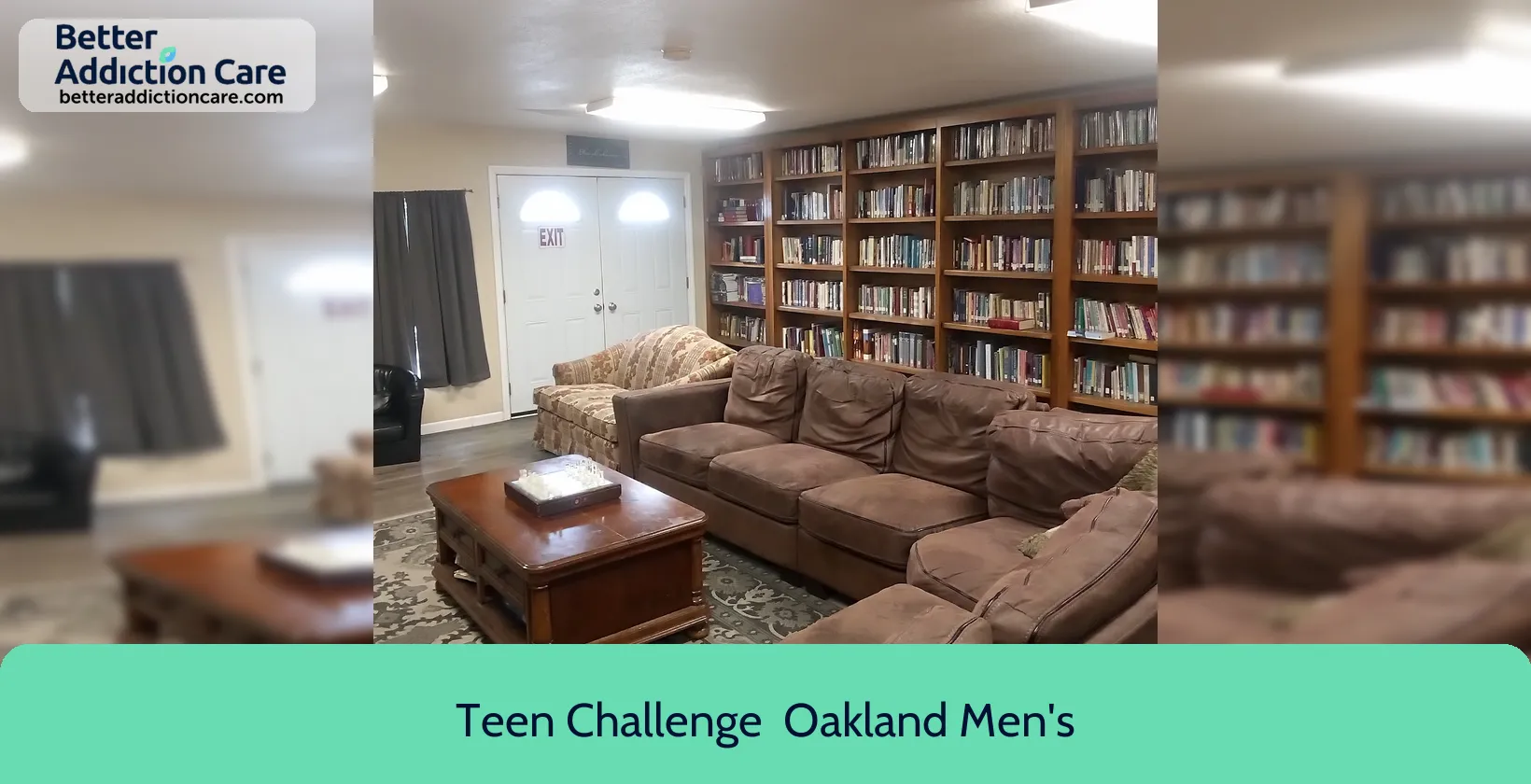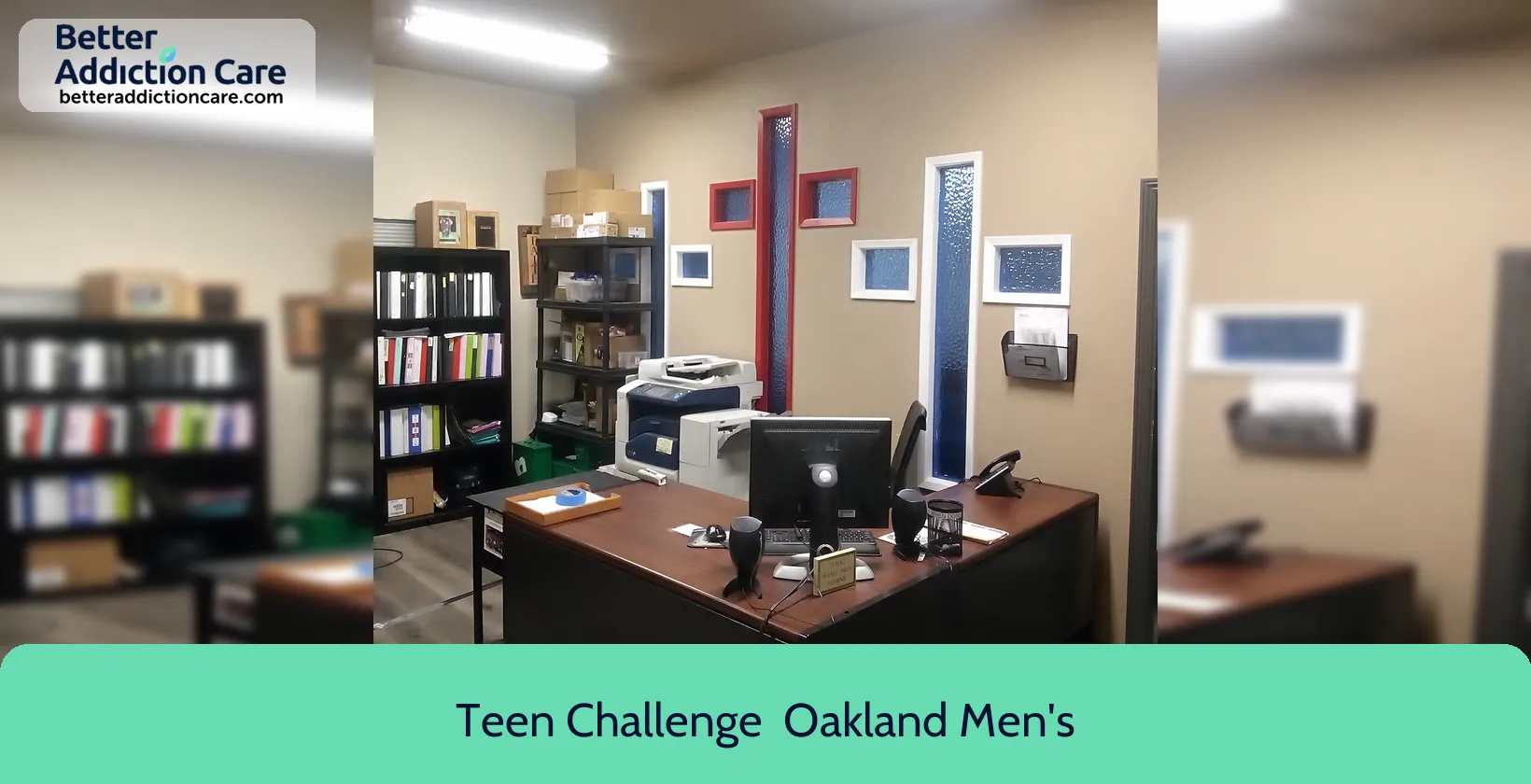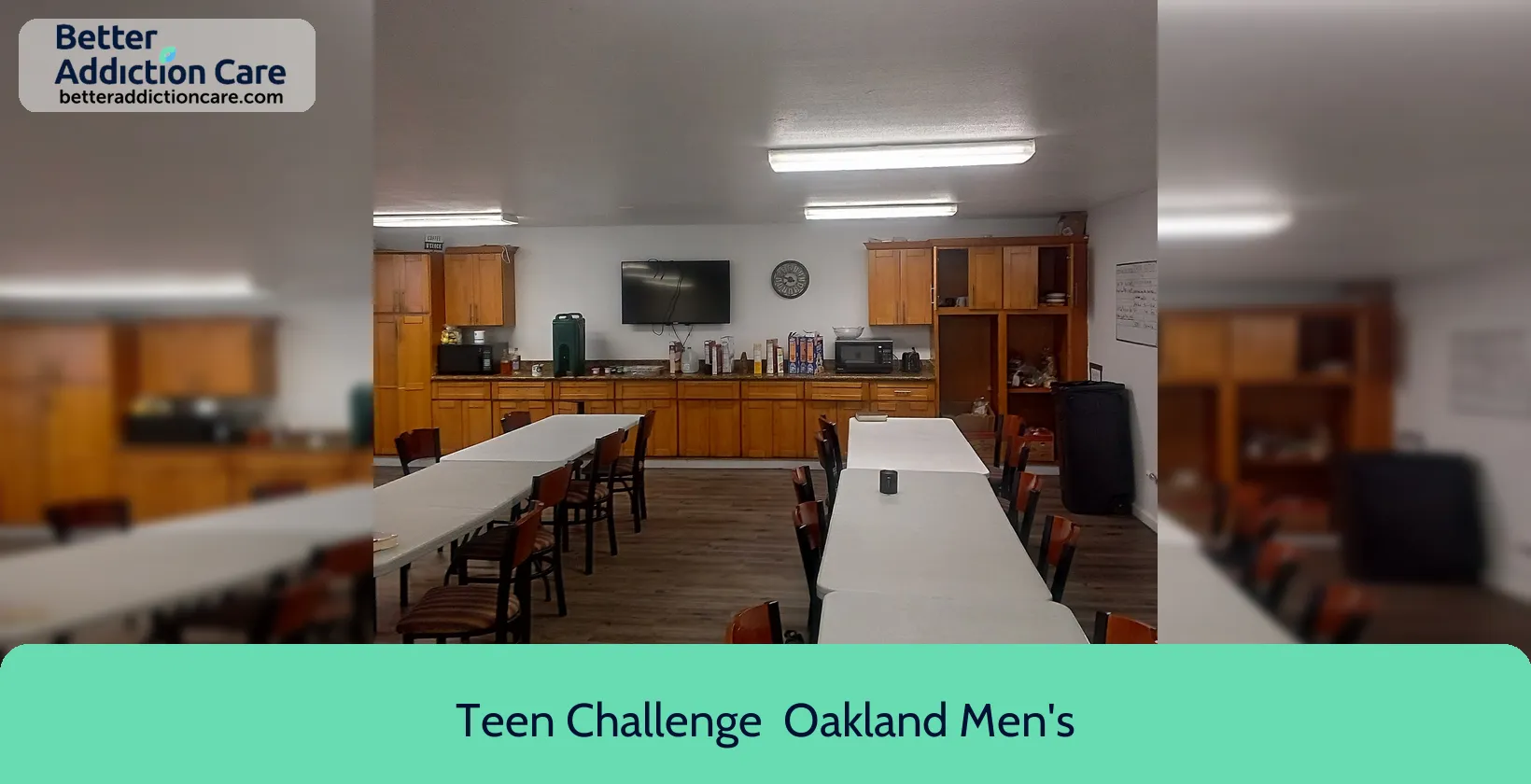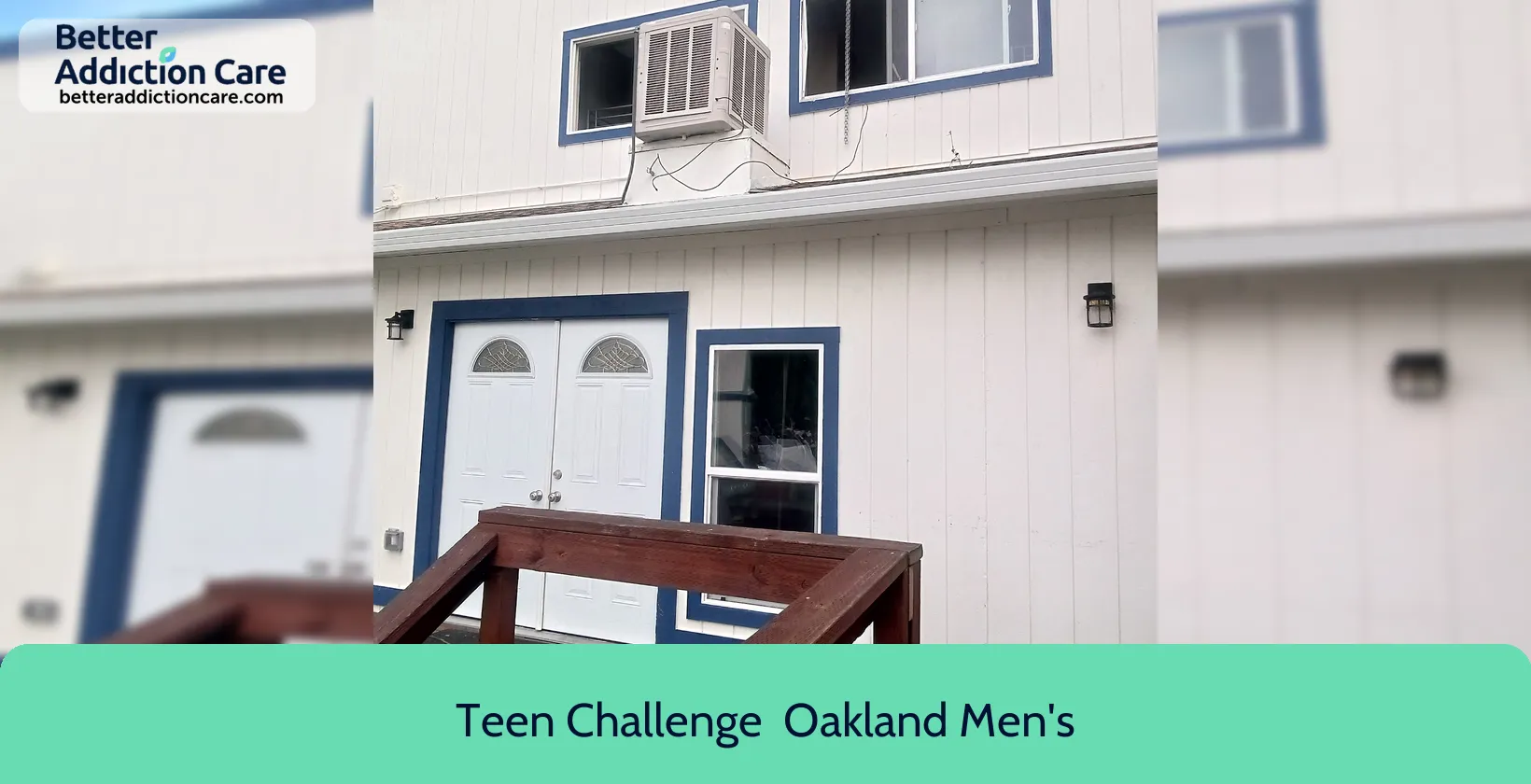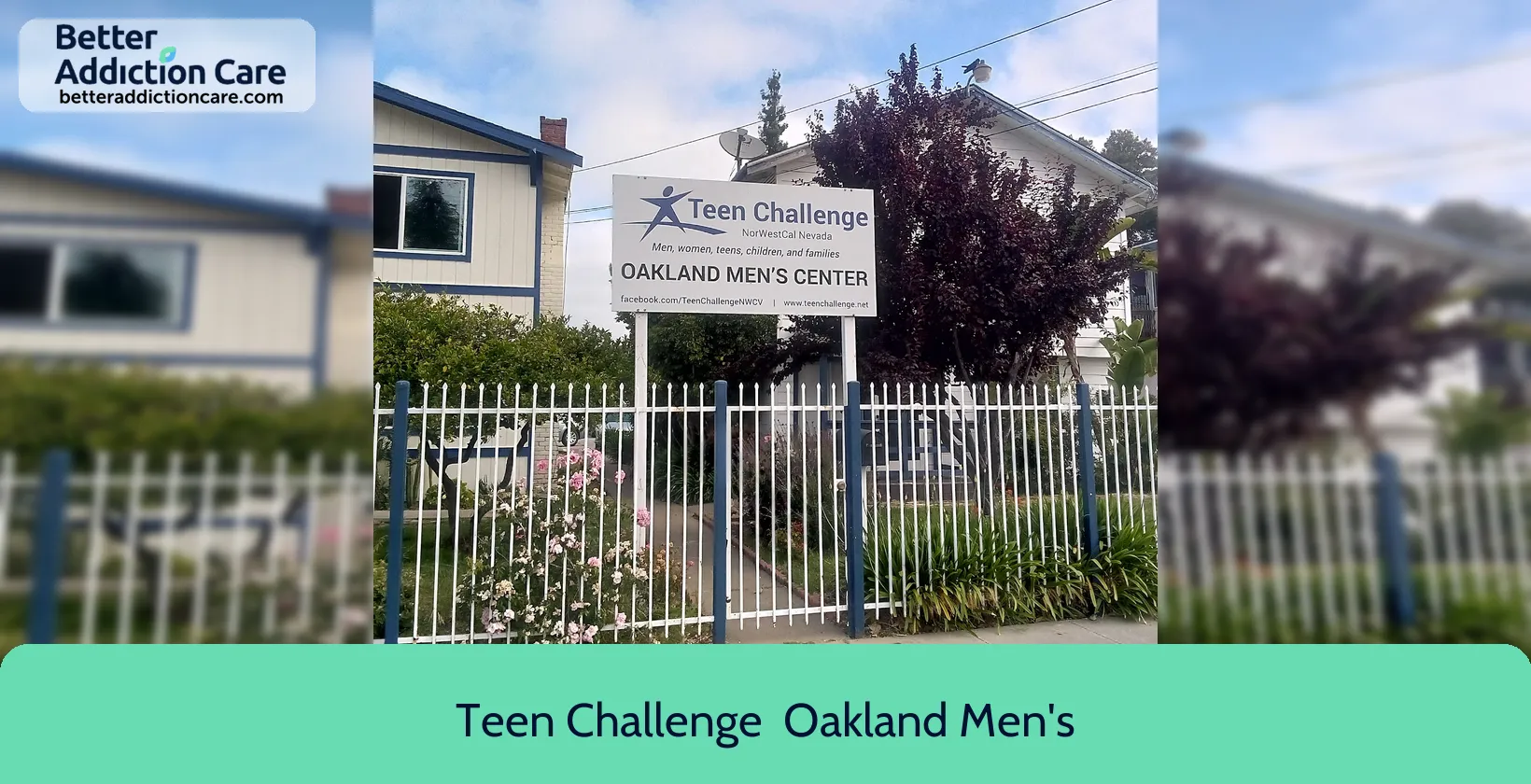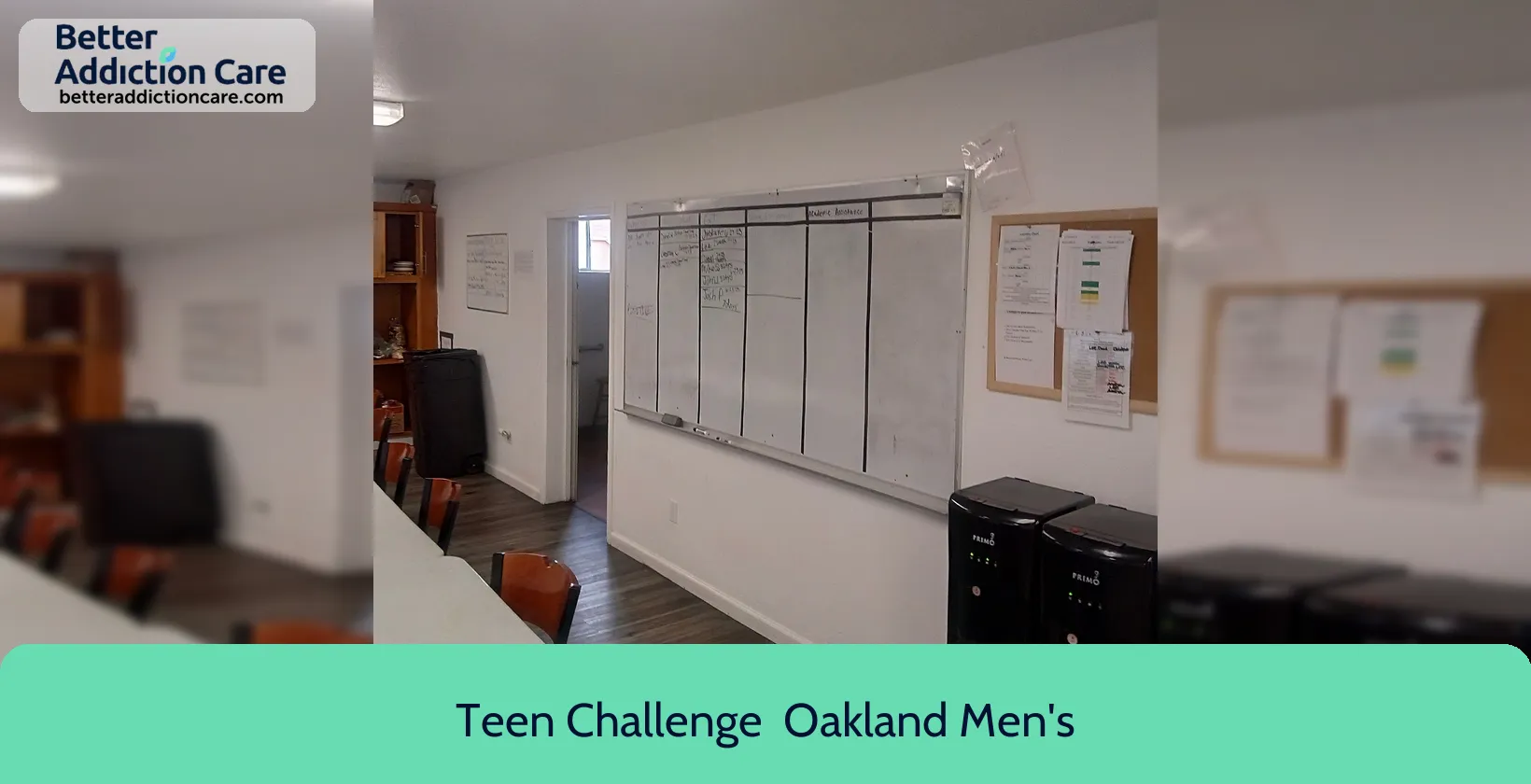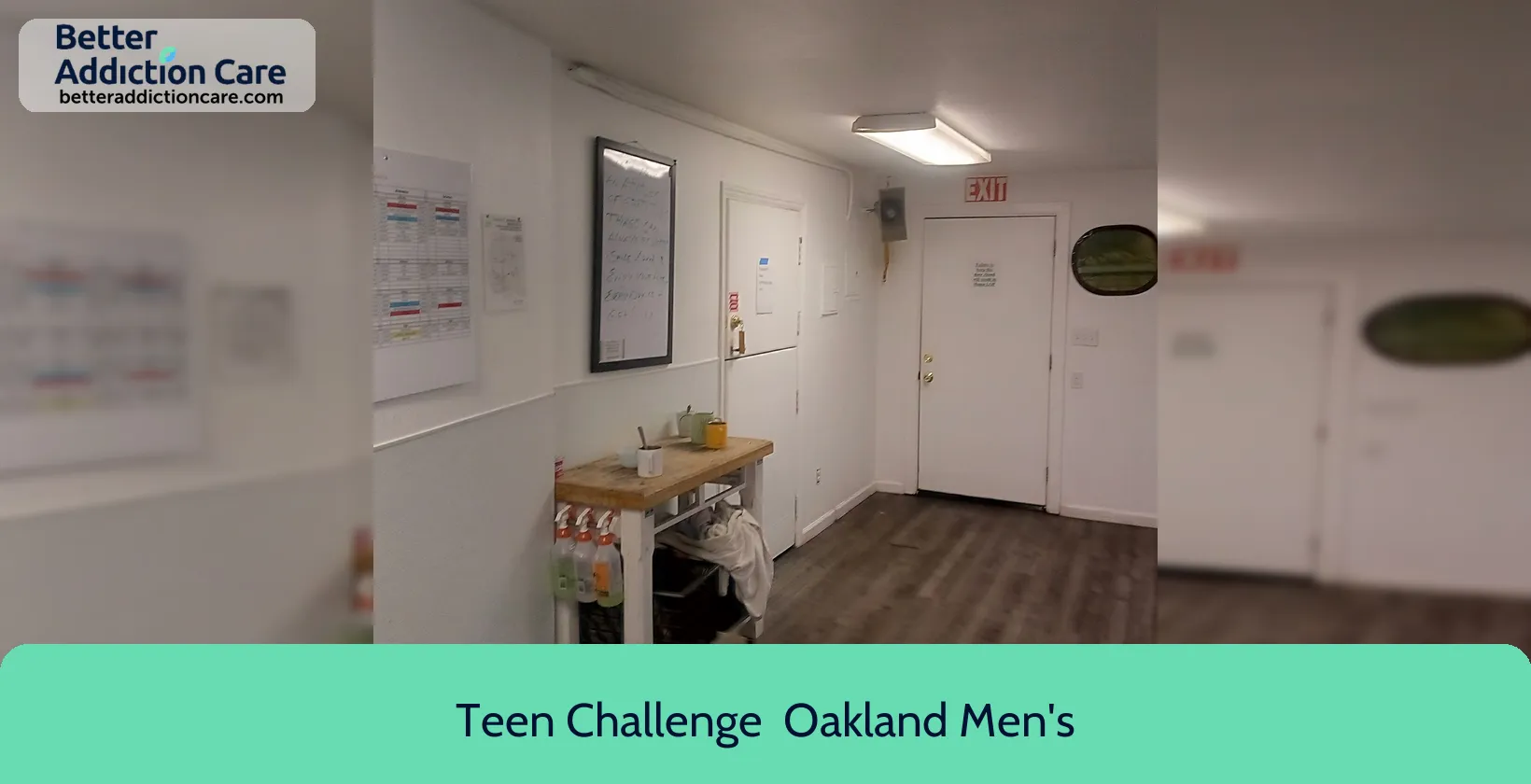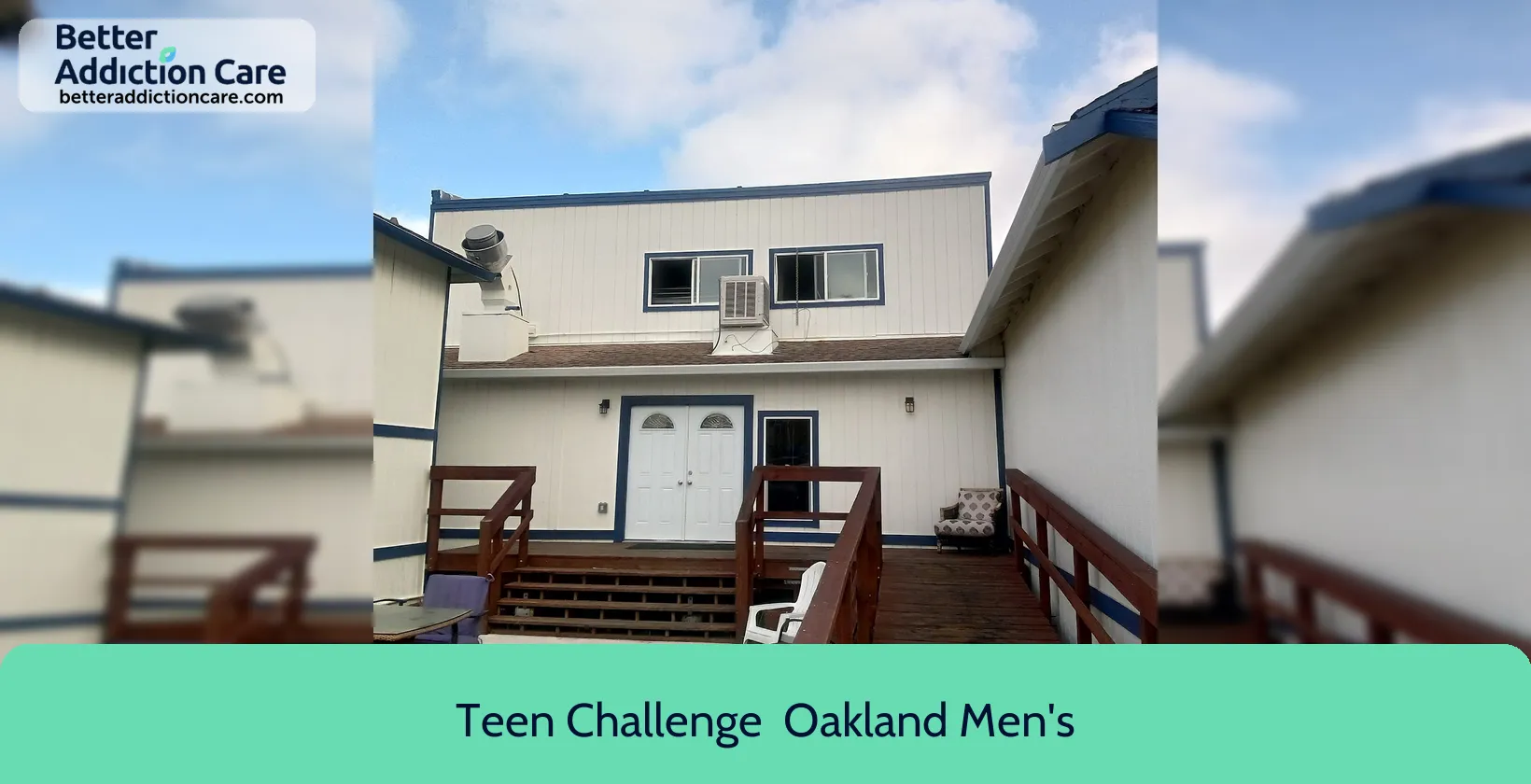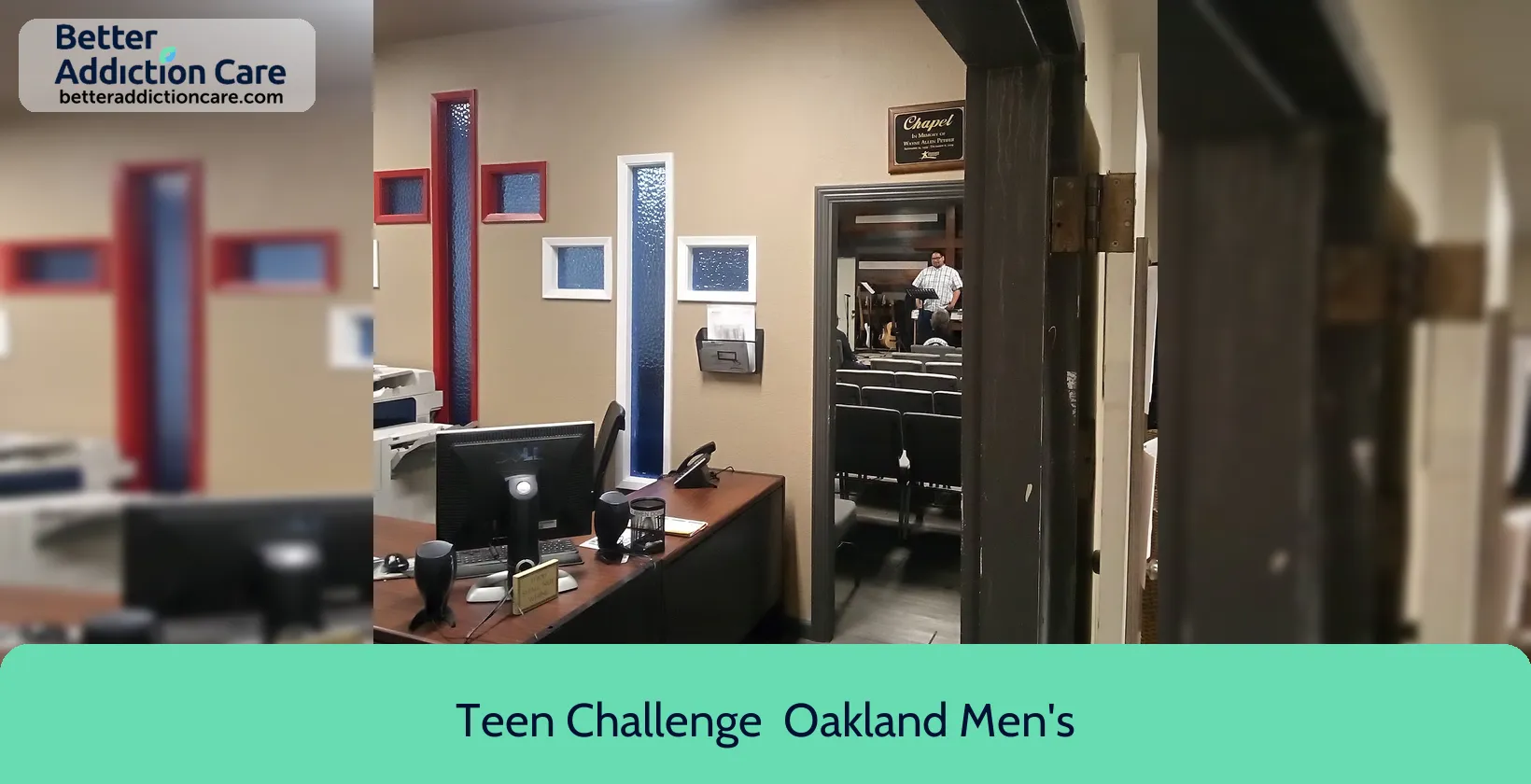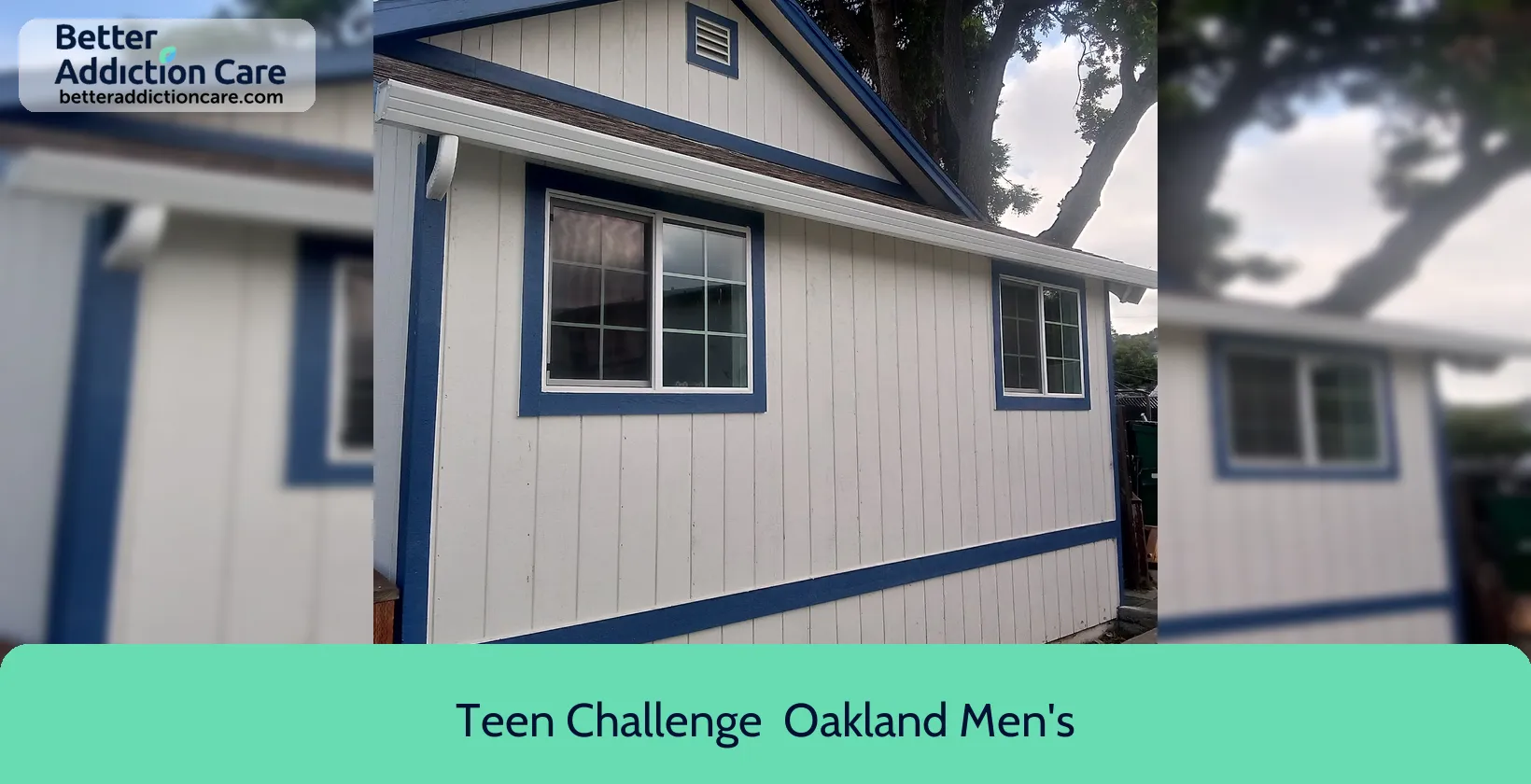Teen Challenge - Oakland Men's Center
Overview
Teen Challenge - Oakland Men's Center is a substance abuse treatment center for people seeking treatment near Alameda County. As part of their treatment modalities for recovery, Teen Challenge - Oakland Men's Center provides trauma-related counseling, individual psychotherapy, and group counseling during treatment. Teen Challenge - Oakland Men's Center is located in Oakland, California, accepting cash or self-payment for treatment.
Teen Challenge - Oakland Men's Center at a Glance
Payment Options
- Cash or self-payment
- Private health insurance
Assessments
- Comprehensive substance use assessment
Age Groups
- Adults
- Young adults
- Adolescents
Operation
- Treatment duration
- Private non-profit organization
Highlights About Teen Challenge - Oakland Men's Center
6.68/10
With an overall rating of 6.68/10, this facility has following balanced range of services. Alcohol Rehabilitation: 8.00/10, Drug Rehab and Detox: 6.00/10, Insurance and Payments: 6.00/10, Treatment Options: 6.73/10.-
Alcohol Rehabilitation 8.00
-
Treatment Options 6.73
-
Drug Rehab and Detox 6.00
-
Insurance and Payments 6.00
Accreditations
SAMHSA certification for opioid treatment program (OTP):
Accreditation by the Substance Abuse and Mental Health Services Administration (SAMHSA) for Opioid Treatment Programs (OTPs) signifies that a program has met strict standards for providing high-quality care to individuals with opioid use disorders. It assures patients, families, and communities that the OTP follows evidence-based practices, employs qualified staff and maintains a safe and effective treatment environment. This accreditation reflects the program's commitment to addressing the opioid epidemic and promoting recovery.
State department of health:

Government agencies issue State Licenses, which grant rehabilitation organizations permission to conduct their operations lawfully within specific geographic regions. Licenses needed to operate are typically determined by the type of rehabilitation program offered by the facility and its physical location.
Treatment At Teen Challenge - Oakland Men's Center
Treatment Conditions
- Alcoholism
- Opioid Addiction
- Substance use treatment
Care Levels
- Detoxification
- Aftercare
- Halfway house
- Hospital inpatient treatment
Treatment Modalities
- Trauma-related counseling
- Individual psychotherapy
- Group counseling
- Life Skills
- Family counseling
Ancillary Services
Special Programs
- Clients with HIV or AIDS
- Clients who have experienced trauma
Get Help Now
Common Questions About Teen Challenge - Oakland Men's Center
Contact Information
Other Facilities in Oakland

6.80

6.71

6.65

6.59

6.74

6.91

6.88
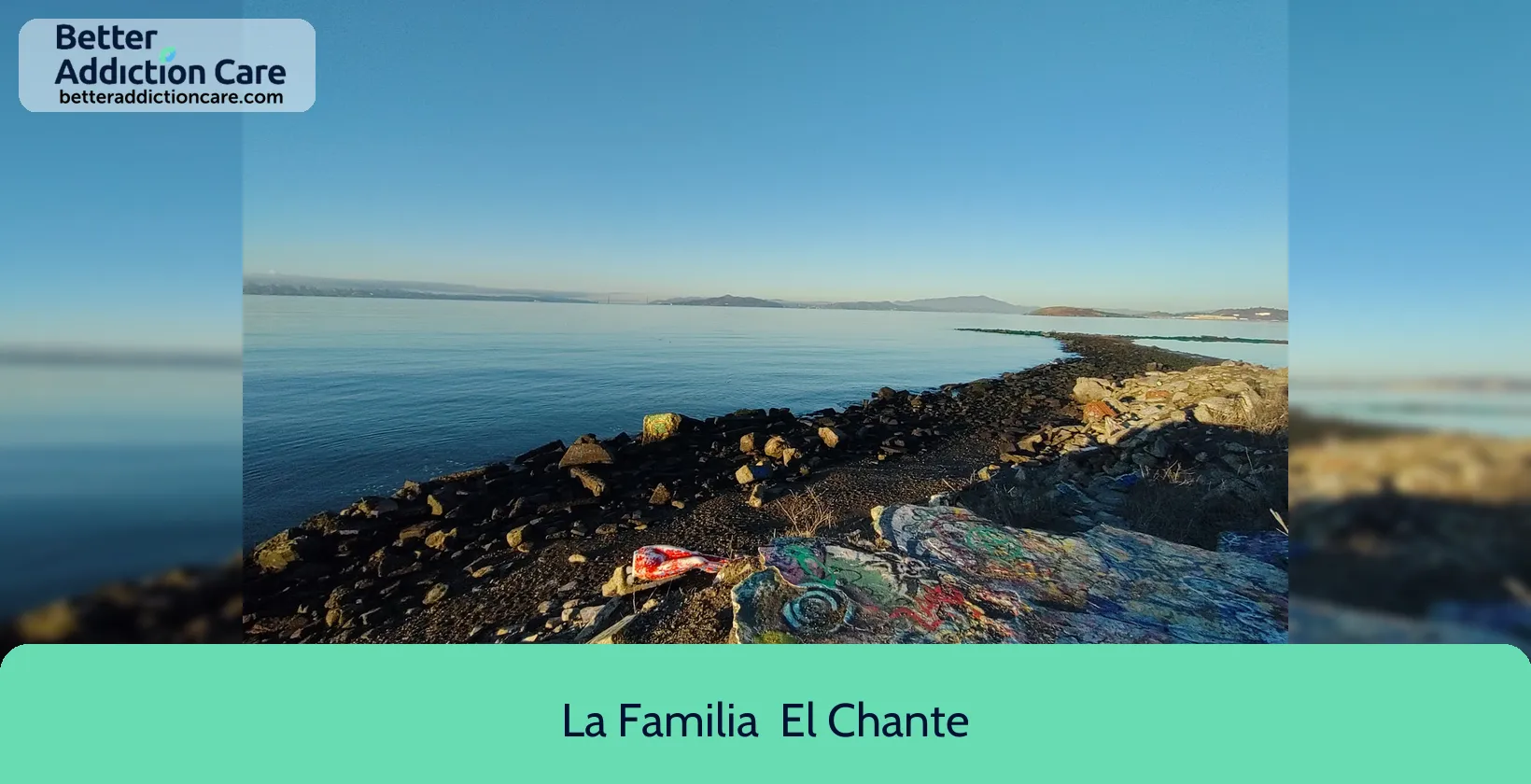
6.68
DISCLAIMER: The facility name, logo and brand are the property and registered trademarks of La Familia - El Chante - Recovery Home, and are being used for identification and informational purposes only. Use of these names, logos and brands shall not imply endorsement. BetterAddictionCare.com is not affiliated with or sponsored by La Familia - El Chante - Recovery Home.
